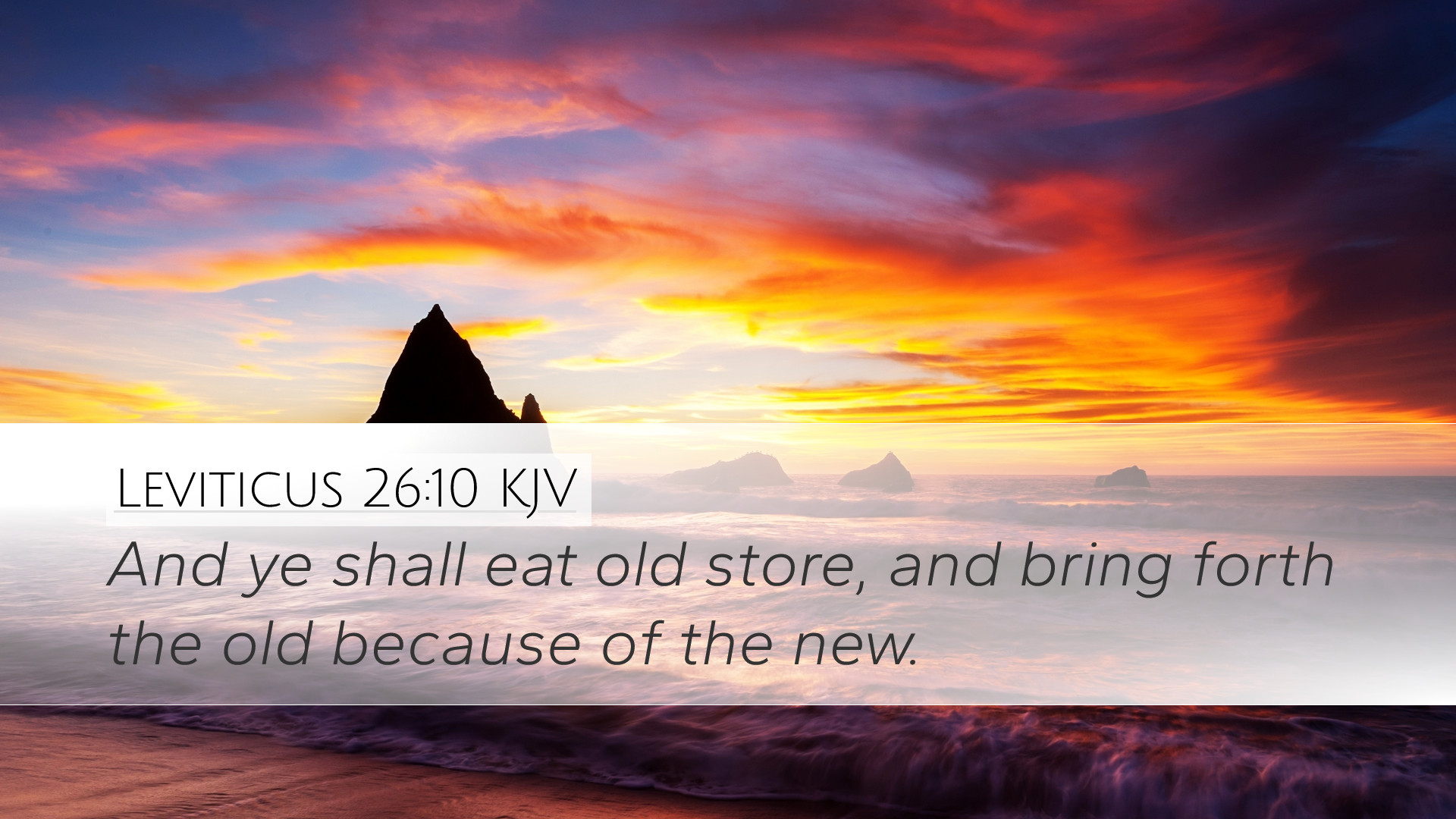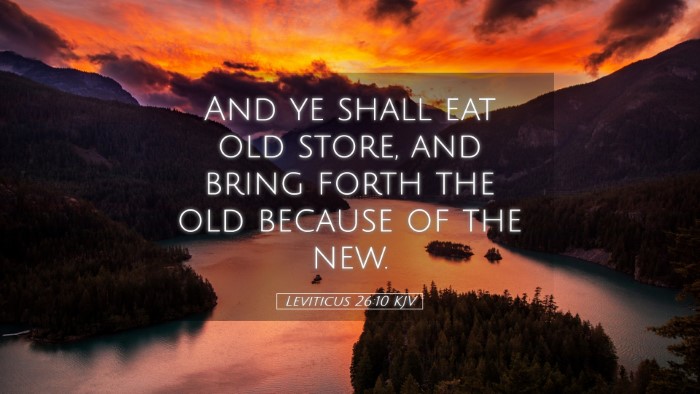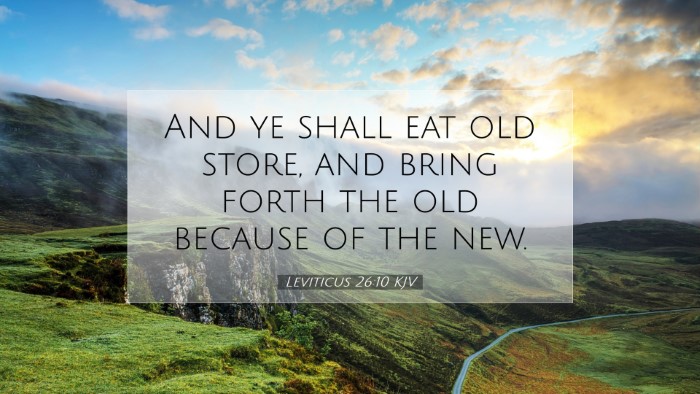Commentary on Leviticus 26:10
Bible Verse: "And ye shall eat old store, and bring forth the old because of the new." (Leviticus 26:10)
Introduction
This verse forms a part of the blessings and curses outlined in Leviticus 26, where it illustrates the faithfulness of God to His covenant people. The context reveals promises of abundance that will come to the Israelites if they are obedient to God’s commandments. The verse indicates a remarkable shift from scarcity to plenty, which contributes to a deeper understanding of God’s provision and sustenance.
Analysis of the Verse
The phrase "ye shall eat old store" implies that the people will have an abundance of food that will last over an extended period. The term "old store" suggests that the harvests will be so plentiful that the Israelites won’t need to rely on new crops immediately, as they will still be consuming the previous year’s harvest. This directly contrasts with the agricultural struggles often faced due to disobedience and sin.
Insights from Public Domain Commentaries
Matthew Henry's Commentary
Matthew Henry remarks on the providence indicated in this promise, highlighting that the faithful observance of God’s laws leads to spiritual and material blessings. Henry underscores the idea that 'old stock' signifies a provision that transcends mere sustenance; it symbolizes God's sufficiency and care for His people. He notes that during times of obedience, God opens the floodgates of heaven to provide its bounty, ensuring that no one goes without.
Albert Barnes' Notes on the Bible
Albert Barnes provides an interpretation of the term "old store" as a symbol of God’s grace. He posits that the phrase represents a rich heritage of blessings that the Israelites will continually enjoy. Barnes emphasizes the practical implications of this promise for the community, indicating that the abundance signifies God’s favor, which underlines the importance of remaining steadfast in faith and covenant loyalty. He also points out that the agricultural paradigm used here would resonate deeply with an agrarian society, serving as both a physical and spiritual promise.
Adam Clarke's Commentary
Adam Clarke expands upon the notion of the 'old store' as not just literal provisions but also spiritual sustenance. He reflects on the continuity of God’s blessings which, while they may refer to physical food, also suggest the enduring nature of God’s word and promises. Clarke draws attention to the notion that the old must be integrated into the new, underscoring a biblical principle of continuity in faith and practice, where past experiences of God's faithfulness bolster the present trust in Him.
Theological Implications
Leviticus 26:10 presents several significant theological implications:
- Divine Providence: This verse illustrates the theme of divine providence, where God actively provides and sustains His people in abundance.
- Covenantal Faithfulness: The blessings outlined here reflect God's faithfulness to His covenant with Israel, highlighting the importance of obedience in experiencing God's promises.
- Spiritual Abundance: The concept of eating the old store opens discussions regarding spiritual nourishment, where past teachings and experiences are vital for growing in faith and understanding.
- Community and Sharing: The communal aspect of sharing abundances serves as a reminder of the fellowship and responsibility believers have toward one another within the context of God’s blessings.
Practical Applications
Leviticus 26:10 offers practical insights for the contemporary believer:
- Recognizing God’s Provision: Acknowledging and being grateful for God’s past provisions can strengthen faith during times of uncertainty.
- Faithfulness in Obedience: Believers are encouraged to remain faithful and obedient to God’s word, trusting that His promises will manifest in abundance.
- Embracing the Old and the New: The integration of old teachings and experiences with new revelations can lead to a deeper understanding of faith.
- Community Engagement: Encouraging sharing among congregations fosters a spirit of gratitude and communal resilience during difficult times.
Conclusion
Leviticus 26:10 serves as a poignant reminder of God’s faithful provision and the blessings that accompany obedience. By drawing insights from Matthew Henry, Albert Barnes, and Adam Clarke, one can appreciate the depth of this verse both as a promise fulfilled in a historical context and as an enduring truth applicable to contemporary faith life. As pastors, students, and theologians study this passage, they are encouraged to embrace the renewed perspective on God’s abundant provision, and the need for communal faithfulness to His covenant.


